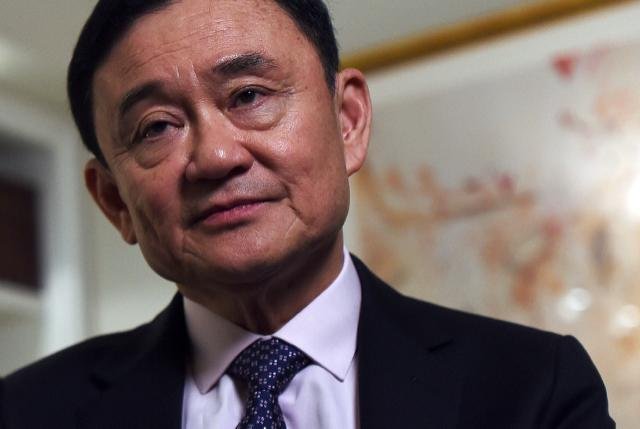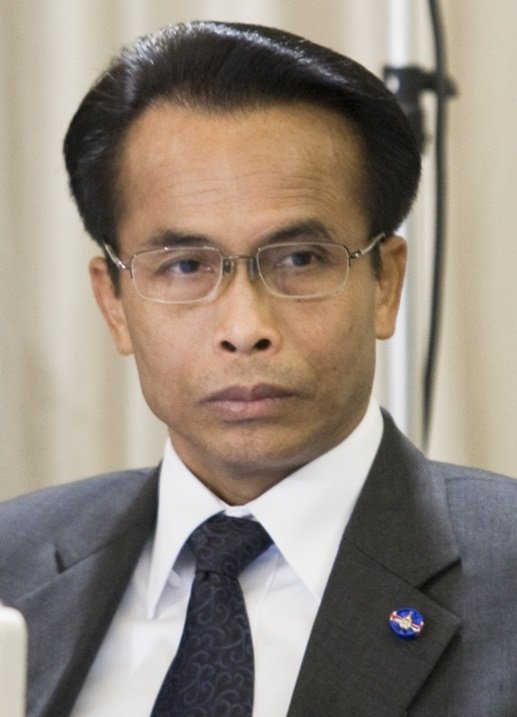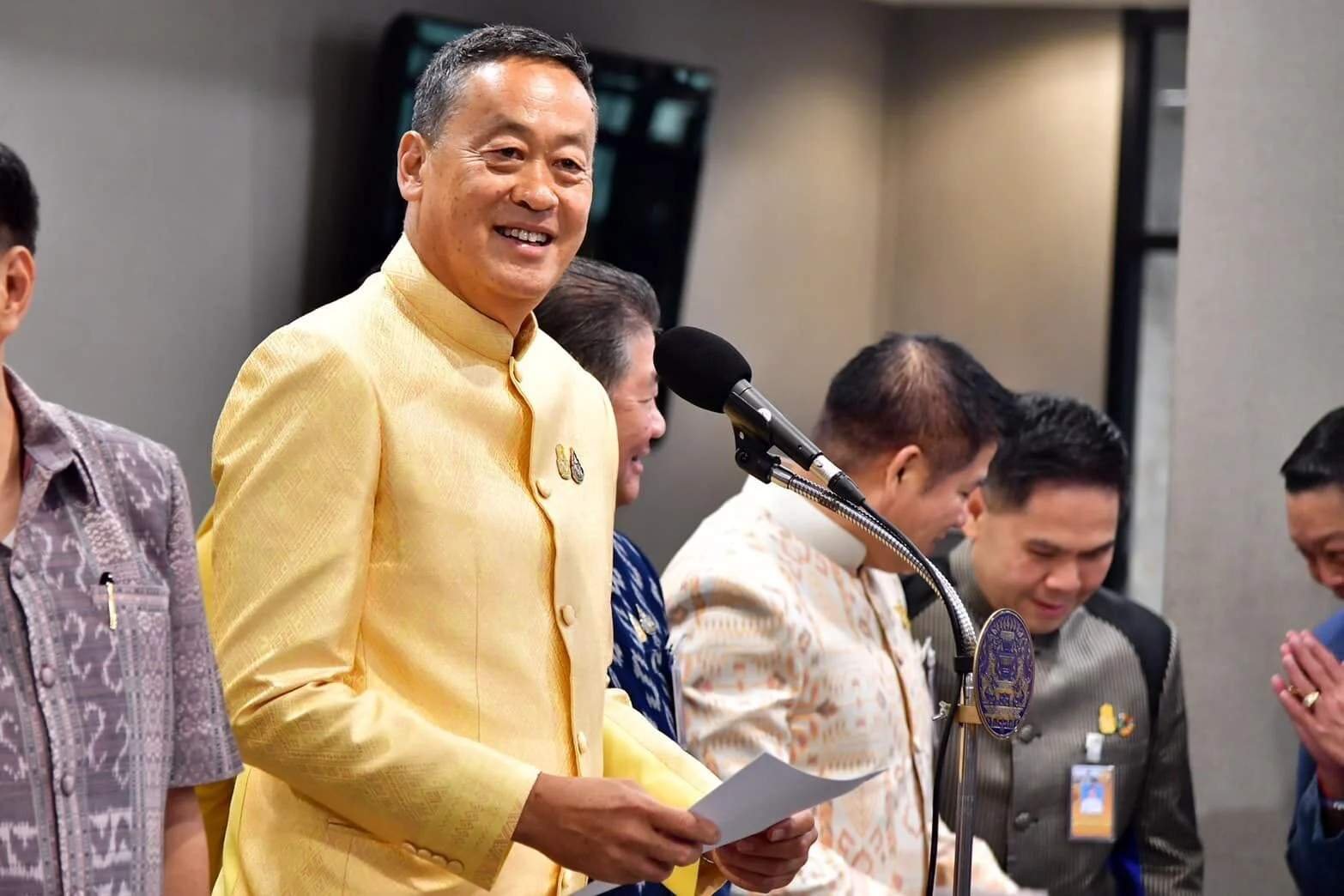Nyheter fra Thailand - levert av ASEAN-now (Tidligere Thai Visa)

My RSS Feed
- Thailand Live Friday 26 April 2024
The Federation of Thai Tourism Associations has issued a warning to the Thai government alerting that the level of tourism has reached a critical point. According to forecasts, the number of foreign visitors in 2024 will be about 40 million, similar to the last pre-COVID year, 2019. This could strain both local environments and tourist experience.
Officials Concerned Over Potential Overcrowding in Pattaya and Phuket
Full Story: https://aseannow.com/topic/1325908-officials-concerned-over-potential-overcrowding-in-pattaya-and-phuket/
Picture: Creative Commons License via Google
25 April 25 20241325938 - Big Joke demands top job at Royal Thai Police HQ

General Surachate Hakparn, popularly known as 'Big Joke', made his return to the Royal Thai Police headquarters this Thursday.The former top police officer pledged to take legal actions against what he strongly believes is an internal conspiracy aimed at thwarting his chances of becoming Commissioner.
Recently removed from his position, 'Big Joke' voiced grave criticism on the current acting National Police Commissioner, General Kittirat Phanphet. He singled out the acting chief for particular scrutiny, stating that his dismissal process was legally flawed and argued it was based on an outdated procedure.
Surachate argued his displacement was executed based on an obsolete method, which was superseded by the updated Thailand 2022 Police Act. The assertion insinuates that his removal may have been unceremonious and potentially unlawful.
Despite the challenges, Surachate remained steadfast in his belief that he is the most suited for the role of the National Police Commissioner. He reiterated his aspiration to assume the position in October.
Asserting he was the best fit for the National Police Commissioner role, he subtly criticized the acting Police Commissioner, General Kittirat Phanphet.
Hakparn spoke out against a group within the police force he described as a 'cabal,' which he believes is trying to thwart his advancement. He promised to initiate legal action against them.
He contended that the method used for his removal a week prior was ill-conceived and based on an obsolete process replaced by the 2022 Police Act.
After retracting a complaint against the Prime Minister two days prior, Hakparn made a resolute comeback.
When addressing reporters, he affirmed his position as a deputy police chief, arguing that his dismissal hasn't been officially confirmed with a royal decree.
Picture: Creative Commons License via Bing
-- 2024-04-26
Get our Daily Newsletter - Click HERE to subscribe
25 April 25 20241325939 - Thailand Eradicates 22 Tonnes of Confiscated Illicit Drugs

On April 24, 2024, Thailand's Office of the Narcotics Control Board (ONCB) spearheaded an operation to destroy a gigantic 22-tonne haul of illegal drugs, seized from 68 different cases, said Pol. Lt. Gen. Panurat Lakboon, ONCB's Secretary-General.
The cache of illicit drugs, valued at several million dollars, was predominantly composed of amphetamine (17,806.87 kilograms) and methamphetamine (2,871.77 kilograms).
Additionally, it had 1,371.42 kilograms of ketamine and 41.16 kilograms of heroin. To obliterate the seized drugs, the ONCB employed a hazardous waste incinerator exceeding temperatures of 1,200 degrees Celsius, fueled by natural gas.
The high-temperature incineration method ensured the complete destruction of the drugs while minimizing the environmental impact, stated the Thai national media.
The location for this operation was in Samut Prakan, where ONCB officers and police escorts previously oversaw the transportation of these drugs 24/7, keeping them under tight security.
Post-incineration, the officers scrutinize the remains for legal processing requirements. As per the Secretary-General of the ONCB, this episode marks the third major drug incineration operation in a year's span, totalling to an impressive 387 tonnes of illicit substances destroyed, all under the purview of transparent and monitorable procedures.
Picture: Creative Commons License via Google
-- 2024-04-26
Get our Daily Newsletter - Click HERE to subscribe
26 April 26 20241325950 - Foreigners and their overseas income: what next?

Many non-working expats are currently concerned about having to deal with more Thai bureaucracies.
More than three months after “assessable” foreign income became taxable, many of Thailand’s expats are still swimming in a sea of uncertainty. Lots of advice online, but few definite answers. Senior officers from the Revenue have said little of late, although there has been a half-promise to the Swiss ambassador in a televised interview to print the tax identification forms in English as well as in Thai.There is a view amongst some Thai lawyers that we must wait until July for clarification on nitty-gritty issues such as double taxation treaties and the tax status of pensions. By that time, some expats will have passed 180 days of minimum residence necessary for tax liability in this category.
However, other specialists argue that the Revenue needs not to clarify anything. After all, formal tax law did not change on January 1 2024. There was simply the closing of a tax loophole which had enabled Thais or foreigners to delay transferring income here until a subsequent year.
Will all foreigners who spend half a year or more in Thailand be required to register with the Revenue by obtaining a tin (tax identification number) and submitting the required forms?The submission deadline for the calendar year 2024 will be in the January-March quarter of 2025. Revenue spokespersons have hinted at the all-inclusive scenario, but there has not been a formal declaration. Could the tax offices cope with the rush?
There are some categories of foreign tax residents who will not be liable at all this year, for example those who do not transfer ANY foreign income to Thailand in 2024 as well as holders of the 10 year Longterm Residence Visa who are exempt from declaring any foreign income in any case.The fact that you may be required to submit forms does not mean that you are, in fact, liable to pay any Thai tax. But expats won’t welcome the envisaged bureaucracy and likely registration with two tax authorities: the home country and Thailand.
There is also ambiguity about the precise status double taxation treaties. A retiree, for example, might argue – and indeed prove – he or she has paid taxes on pensions in the home country. But the Revenue could argue that the retiree could use those payments as a tax credit in Thailand rather than conceding a total immunity.
Everyone agrees that the revised rules about foreign income are designed to catch Thais (and foreigners) making profits from untaxed overseas businesses and foreign exchange and crypto currency trading. The problem, needless to say, could be small fish being caught in the net alongside big ones.
The optimistic view about the future is that tin registration will remain voluntary as, in fact, it always has been for Thai citizens. If you think you are liable for tax, then by all means register. If you try to cheat, the newish Common Reporting System – an automatic and international exchange of the financial information of individuals to combat tax evasion and ensure compliance – will expose your dealings.
But if all expats living here for half a year or so are thrown into the same pit willy-nilly, then Thai authorities can expect non-working longstay expats to become an endangered species. Imagine the note on official publicity for one year extensions or for Elite visas: “You are reminded that you are required to register with the Thai Revenue’s tax identification system if staying in Thailand more than 180 days in a calendar year.” Not exactly marketing.
By Barry Kenyon
TOP: File photo for reference only.
-- Barry Kenyon 2024-04-04
Get our Daily Newsletter - Click HERE to subscribe
4 April 04 20241324106 - Officials Concerned Over Potential Overcrowding in Pattaya and Phuket

The Federation of Thai Tourism Associations has issued a warning to the Thai government alerting that the level of tourism has reached a critical point. According to forecasts, the number of foreign visitors in 2024 will be about 40 million, similar to the last pre-COVID year, 2019. This could strain both local environments and tourist experience.
Phuket and Pattaya are the cities most affected, with 118 and 99 foreign visitors for every local resident respectively, as per a study by MoneyTransfers. But this data is already several months old and the actual ratios could be even higher. Chris Flynn, CEO of the World Tourism Association, suggested that Thai officials appear to have not foreseen the toll the influx could take.
Signs of excessive tourism in Pattaya include heavy traffic, worsened by tour buses jamming insufficient roads, and ongoing road repairs in and around the city center. As British tourist John Leeman described, "After dark, it takes me at least an hour to travel from Jomtien to central Pattaya, double the time it took last year, and finding a parking spot when you arrive is nearly impossible."
The already dire situation could intensify due to potential water shortages brought on by inadequate rainfall and the possible increase in passengers at U-tapao airport near Pattaya. Some airlines currently do not use the airport due to the lack of regular bus transportation into Pattaya. But, if this changes, daily arrivals at U-tapao may significantly increase.
Recently, the number of tourists in Thailand has risen, in part because the country has waived holiday visas for large markets like Russia, China, and India. In response, Thai authorities are attempting to divert tourists to less popular provinces to relieve pressure on traditional resorts. The Thai Tourism Council is also urging the government to charge a 300 baht entry fee to fund development and improvements. However, travel experts question whether such measures can effectively control over-tourism.
Tourism control is not just a Thai issue. For instance, Greece now requires advance booking and pre-payment for visits to the Acropolis. The Netherlands has strengthened drug laws and stopped the construction of new hotels to curb unruly behavior among tourists. Some believe Thailand's recent crackdown on foreign crime and the potential ban on recreational cannabis suggest it also aims to deter certain types of tourists. In the words of a Thai Cabinet minister, "We want quality tourists from now on."
Caption: Creative Common License via Google
-- 2024-04-25
Get our Daily Newsletter - Click HERE to subscribe
25 April 25 20241325908 - Thai Airways bids farewell to iconic Boeing 747 ‘Queen of the Skies’

Thai Airways has officially said goodbye to the iconic Boeing 747, also known as the 'Queen of the Skies.' This decision comes on the back of Air India retiring its last four Boeing 747-400s. The Thai airline held a grand farewell ceremony for the much-loved aircraft.
A photograph from the retirement ceremony showing the engineless Boeing 747-400 surrounded by tables and chairs was shared on Tuesday, marking the end of an era.
The plan was to retire the aircraft by the end of 2024. However, the Covid-19 pandemic caused a change of plans. Thai Airways put all its Boeing 747s into storage in March 2020, with the last one joining in December 2020 at the Bangkok Suvarnabhumi Airport.
As the aviation industry begins its recovery from the pandemic, Thai Airways decided it no longer needed the Boeing 747. The legendary aircraft was not the only one to retire; the airline also retired its six Airbus A380s.
Despite Thai Airways closing this chapter, Lufthansa still operates the biggest fleet of Boeing 747-400s, according to Aerotime Hub. Airlines like Atlas Air, Air Atlanta Europe, and Air China also continue to use the Boeing 747-400.
In other news, Thai Airways has decided to avoid the Middle East for its flights to Europe due to the ongoing conflict between Iran and Israel. Thai Airways President Chai Eamsiri confirmed that the airline had slightly adjusted some flight routes to avoid the airspace over the Middle East. He also added that there were no immediate risks to Thai nationals in Iran and Israel.
Picture: :Thai Airways International Boeing 747-400. Creative Common License via Google
-- 2024-04-25
Get our Daily Newsletter - Click HERE to subscribe
25 April 25 20241325895 - Government Promises to Ease Traffic Woes on Rama II Road

Government spokesperson Chai Wacharonke has announced that the chronic traffic issues on Rama II Road will soon be in the past, with all ongoing construction work to be finished by next year.
This pledge came after a tense discussion on social media with Bangkok's Move Forward MP, Rukchanok Srinork, about the unbearable traffic conditions on this busy road.
Chai countered on Monday, recounting a trip from Hua Hin to Bangkok that took a reasonable two hours and 40 minutes, contradicting claims of constant traffic.
Rukchanok responded by accusing Chai of ignoring the real experiences of daily commuters. She referred to Prime Minister Srettha Thavisin's infamous bike ride in Chiang Mai as a sign of disconnect from reality.
She also challenged Chai to experience the Rama II traffic jams for a month, and called for acknowledgement of the everyday struggles faced by people.
In turn, Chai emphasised the government's dedication to solving the traffic problem. According to Thai PBS World, he laid out plans to speed up construction projects that have been on hold for over 50 years.
Under a strict rule focused on public safety, construction is now restricted to late-night hours to lessen travel disruptions.
Simultaneously, a sudden scaffolding collapse on Rama II Road in Samut Sakhon province has led to an immediate investigation, directed by Department of Highways Director-General Sarawut Songsivilai. A comprehensive safety check of all steel scaffolding along the elevated Motorway 82 (M82) is also planned.
Elsewhere, Thailand's transport minister reported the construction on Rama II Road will still cause delays during the Songkran festival. Even though there are efforts to hasten the work, the project completion date is now moved to June 2025. The minister assured contractors would receive compensation to encourage quicker progress.
Caption: Creative Common License via Bing
-- 2024-04-25
Get our Daily Newsletter - Click HERE to subscribe
25 April 25 20241325896 - Private Talks Between Thaksin, Srettha Fuel Cabinet Reshuffle Speculation

Thaksin Shinawatra, de facto Pheu Thai boss and convict on parole, had a private meeting with Prime Minister Srettha Thavisin and Deputy Prime Minister Phumtham Wechayachai. The meeting, suspected to discuss a cabinet reshuffle, was conducted at a high-end Sukhumvit Road hotel in Bangkok.
Thaksin, known to have the final say over these changes, previously supported the rise to power of Srettha, a real-estate tycoon turned Prime Minister. Srettha, who also holds the finance portfolio, is predicted to resign this role in favor of Pichai Chunhavajira, former chair of the Stock Exchange of Thailand. Speculation points to Srettha taking over the defense portfolio from Defense Minister Suthin Khlangsang.
Possible additions to the cabinet may include Nattapon Nakpanich, a former deputy army chief and pupil of former Prime Minister Prayut Chan-o-cha. Other anticipated members are Paopoom Rojanasaku as deputy finance minister, Jiraporn Sindhuprai as deputy commerce minister, and Pichit Chuenbarn as a minister in the Prime Minister's Office.
Current members that may be out in this reshuffle include Public Health Minister Chonlanan Srikaew, Deputy Agriculture & Cooperatives Minister Chaiya Promma, and Prime Minister’s Office Minister Puangpetch Choonla-iad. The third and fourth largest coalition partners, Palang Pracharath and Ruam Thai Sang Chart respectively, are anticipated to change some ministers.
Picture: Creative Commons License via Bing
-- 2024-04-26
Get our Daily Newsletter - Click HERE to subscribe
25 April 25 20241325945 - Ex-Deputy House Speaker Blamed by NACC for Serious Breach of Ethics

The National Anti-Corruption Commission (NACC) has incriminated former Deputy Agriculture Minister, Supachai Phosu, for serious breaches of ethical political behavior. He had unlawfully possessed 35.2 hectares of land in the Tha Uthen district within the Nakhon Phanom province in north-eastern Thailand.
As shared by NACC's Secretary-General, Niwatchai Kasemmongkol, Mr. Supachai had earlier declared his assets, which included 40 plots covering the 35.2 hectares in the Dong Pathai forest. He disclosed these assets following his election as a Member of Parliament (MP) for Nakhon Phanom in 2007, his stature as deputy agriculture minister in 2008, and his subsequent election as an MP in 2019.
The NACC's investigation disclosed that Mr. Supachai wasn't legally eligible to own land through the land allocation program. Instead, he purchased the land from those who were legally entitled and given Nor Sor land ownership certificates. Later, Mr. Supachai transformed this land into rubber plantations.
Niwatchai explained that transfer or sale of such land is not permitted, but it can be inherited.
Even after Mr. Supachai decided to give up the disputed land in July last year, the NACC Secretary-General asserted that such a delayed move doesn't absolve him of his past wrongdoings. This, Niwatchai added, has denied landless or small-scale landowners from utilizing the disputed land.
In a separate case, the NACC similarly found Nakhon Ratchasima MP Suchart Pinyo at fault for serious breaches of ethical political conduct due to owning and utilizing about 40 hectares of land under a land reform program in Wang Nam Khiao forest, located in Wang Nam Khiao district.
Both cases are expected to be handed over to the Criminal Division of the Supreme Court for Political Position Holders for further evaluation.
Caption: Creative Common License via Google
-- 2024-04-25
Get our Daily Newsletter - Click HERE to subscribe
25 April 25 20241325901 - Thailand offers visa-free travel to Russian visitors for 3 months

Prime Minister Srettha Thavisin today announced that Thailand is offering a visa-free scheme to Russian visitors for three months from May 1 to July 31.
PM Srettha held a press conference at Government House at 11.50am, today, April 23, following a Cabinet meeting earlier in the day. In a part of his speech, the 62 year old Thai PM mentioned that the Cabinet agreed to offer visa-free travel to government officials from Bangladesh while also approving visa-free travel for Russian nationals.
The PM explained that Russian visitors would be allowed to enter Thailand and stay for 60 days without the need to apply for a visa. This special measure will come into effect for three months, from May 1 to July 31, according to a report on PPTV HD.
This measure will replace the former visa-free arrangement, which expires at the end of this month. Under the previous arrangement, Russian citizens were permitted to enter Thailand and stay for 90 days from November 1 of last year to April 30 of this year.
While Thailand prepares to extend a visa-free plan for Russian nationals, MRG Online reported last month that Sri Lanka had cancelled its visa exemption plan for both Russian and Ukrainian nationals due to racism.This decision followed an incident at a nightclub called The Sarayka Lounge, where locals were banned from entering with a sign that read “Face Control: White.”
Thai people, especially in Phuket, previously expressed concerns about the behaviour of Russian nationals on social media. They accused Russians of taking their jobs by illegally working and operating businesses. Several crimes committed by Russian nationals have also made headlines in Thai news outlets.
According to a report from the Ministry of Tourism and Sports, more than 9.9 million foreign visitors entered Thailand between January 1 and April 7, generating over 480 billion baht in income for the country.
Russian nationals ranked among the top three foreign visitors with 661,000 people entering during the period. The other two top countries were China (1.8 million people) and Malaysia (1.2 million people).
Thailand began implementing a visa-free scheme for visitors from China and Kazakhstan last year. The country then reached a mutual visa-free agreement with China to allow residents from both countries to travel and stay for 30 days without visas, starting from March 1 onwards.
by Petch Petpailin
Photo via Facebook/ เศรษฐา ทวีสิน - Srettha Thavisin
Full story: The Thaiger 2024-04-24
Get our Daily Newsletter - Click HERE to subscribe
23 April 23 20241325757

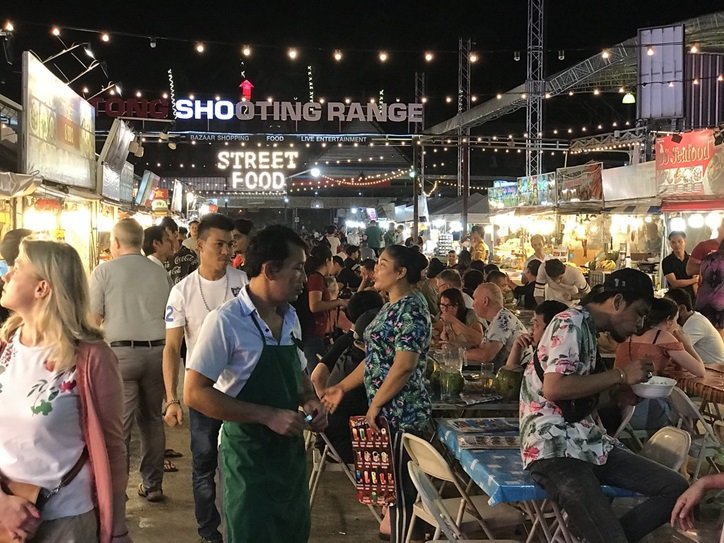



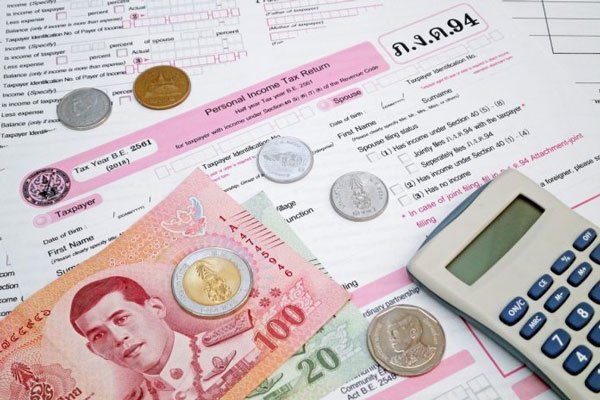

.jpg.2cf04cefd60983d9c229395465f2e4e9.jpg)

